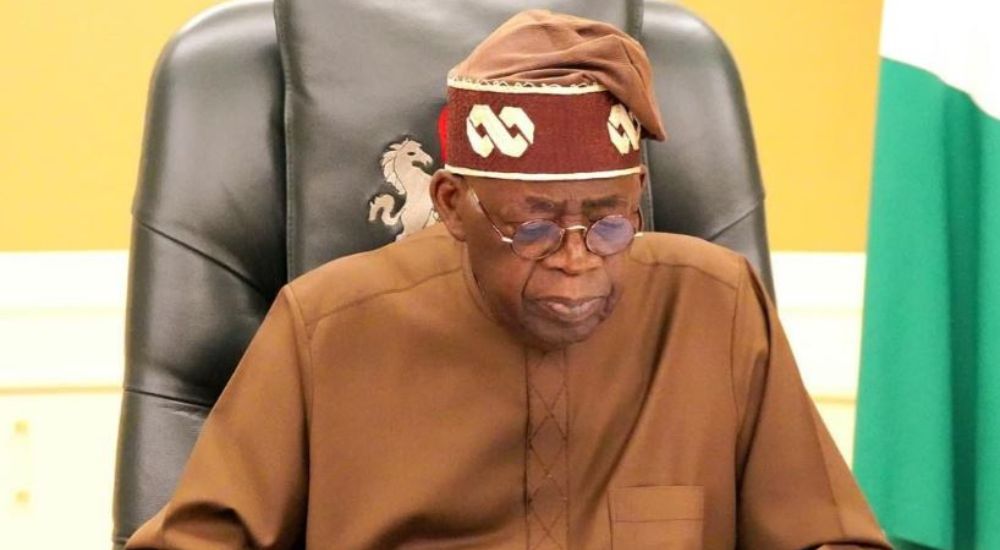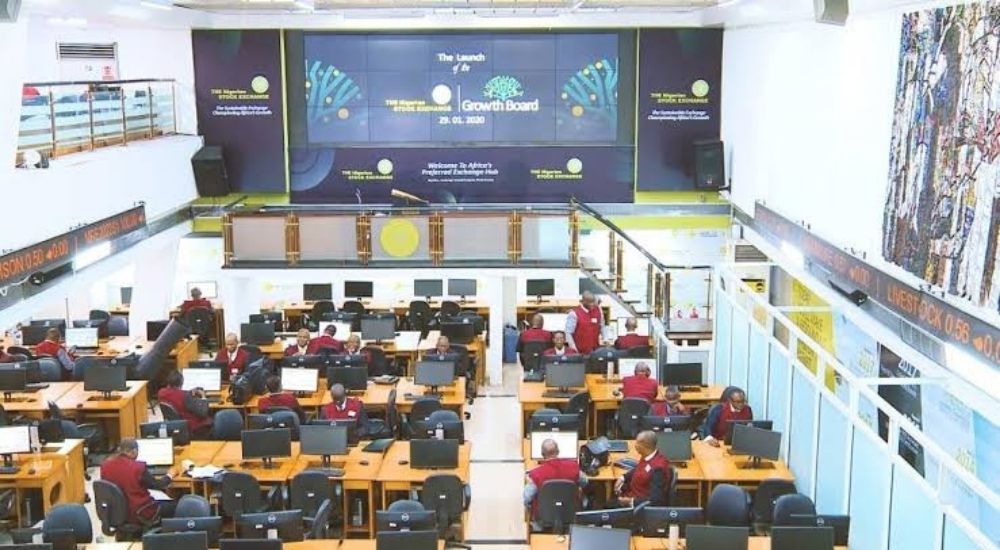Economic Gains On Paper, Hardship On The Streets

Two years into President Bola Ahmed Tinubu’s administration, Nigeria’s economy stands at a crossroads—marked by bold reforms, record-breaking fiscal ambitions, and rising hardship for millions. With over ₦83.7tn in signed budgets, Tinubu has pursued an aggressive overhaul of monetary and fiscal policy, promising to restore stability, attract investment, and launch Nigeria into the $1tn economy club.
Yet, while the Central Bank touts a rebound in foreign reserves and progress on exchange rate unification, the current realities of ordinary Nigerians tell a more painful story—soaring inflation, a battered naira, and deepening poverty. Experts and analysts are divided: some see structural progress; others, a growing disconnect between economic figures and social wellbeing.
The president appointed Wale Edun as the Minister of Finance and Coordinating Minister of the Economy to oversee his ambitious economic reforms that would usher Nigeria into the $1tn economy club.
He also named Olayemi Cardoso as the Central Bank Governor with the task to depart from the non-conventional approach of the Godwin Emefiele-led CBN and adopt a more conventional approach.
When Tinubu assumed office on May 29,2023, he made a concrete commitment to sanitise Nigeria’s monetary policy space which had been challenged by inflation, foreign exchange crunch and unstable exchange rate.
“Monetary policy needs thorough housecleaning. The Central Bank must work towards a unified exchange rate. This will direct funds away from arbitrage into meaningful investment in the plant, equipment and jobs that power the real economy.
“Interest rates need to be reduced to increase investment and consumer purchasing in ways that sustain the economy at a higher level,” he had said in his 2023 inauguration speech.
Another commitment he made was to overhaul existing fiscal policy structures that had limited government revenues during the Muhammadu Buhari-led government.
To achieve this, the president vowed to introduce a tax reform that would widen the tax net and eliminate multiple taxation.
He promised, “Budgetary reform stimulating the economy without engendering inflation will be instituted. Our government shall review all their complaints about multiple taxation.”
THE WHISTLER reviewed Tinubu’s monetary policy successes and failures in the last two years.
Despite Stable Exchange Rate, Naira Weakened By 98%
Tinubu took over from former President Muhammadu Buhari at a time when the country was experiencing foreign exchange crunch and an unstable exchange rate.
The CBN had a foreign exchange backlog of $7bn, operated multiple exchange rates- the investors and exporters’ (I&E) foreign exchange window, the secondary market intervention sales retail window, the small and medium-size enterprises (SME) window, and the window for invisibles.
Under Tinubu, the CBN inherited an official rate of N461 per dollar, while at the parallel market, controlled by Bureau de Change Operators, the naira traded at N780 per dollar, leaving a margin of N319 per dollar.
An investigation showed that as of June 14, 2024, the CBN collapsed the different FX markets into the Nigerian Autonomous Foreign Exchange Market (NAFEM) and reintroduced the ‘Willing Buyer, Willing Seller Model.’
The apex bank also introduced a managed float. With the reforms, the CBN has achieved a more stable exchange in two years despite the depreciation of the naira from N461 in May 2023 to N1,579.4 per dollar as of May 26, 2025.
The CBN has also recorded success in reducing the gap between the official rate and black market rate to about N40.6 as of May 2025, as the black market rate traded at N1,620 per dollar on May 27, 2025.
But PwC’s Nigeria Economic Outlook report indicated that the naira’s value fell by 98 per cent in a seven-month period between May and December 2023.
The bank also cleared the outstanding $7bn foreign exchange following a successful verification exercise by forensic auditors.
Net Foreign Reserves Grow To $23bn In Two Years
The current administration inherited net foreign exchange reserves, which fell to $3.7bn by 2022 ending. It fell from $14bn held in December 2021, according to JP Morgan.
“Based on partial information from the audited financial accounts, we estimate that CBN’s net FX reserves were around US$3.7bn at the end of last year, from US$14.0bn at end-2021,” JP Morgan had stated.
In THE WHISTLER’s review in the last two years, net reserves have risen from the $3.7bn to $23.11bn, according to CBN financials.
“This improvement in our net reserves is not accidental; it is the outcome of deliberate policy choices aimed at rebuilding confidence, reducing vulnerabilities, and laying the foundation for long-term stability,” the apex bank governor, Cardoso said.
Food Inflation Soars Out Of Control Under Tinubu:
Tinubu inherited an inflationary pressure which pushed the Consumer Price Index to 22.22 per cent in April, 2023.
In April, food inflation was 24.61 per cent on a year-on-year basis.
In the last two years, Cardoso-led CBN has recorded little success in taming inflation, which rose to a historic 34.80 per cent in December 2024.
In June 2024, food inflation rose to a record 40.87 per cent in June 2024.
However, after the rebasing of the CPI, a report by the National Bureau of Statistics showed that inflation dropped to 23.71 per cent, which is higher than the 22.22 per cent inherited by Tinubu.
Tinubu’s Fiscal Regime In Two Years
The success of Tinubu’s fiscal regime hinges on his tax reform, subsidy removal and budget implementation.
Tax Reform
Tinubu promised to overhaul the tax system he met with the intention to widen tax net, eliminate double taxation and increase government earnings.
Tinubu’s fiscal team has made strides in reforming the country’s tax environment.
In terms of revenue generation, the Tinubu-led government has seen revenue from customs and the Federal Inland Revenue Service (FIRS) surge by 300 per cent.
In 2022, the Nigeria Customs Service (NCS) collected N2.14tn. But in 2024, NCS collected over N6.1tn in revenue, surpassing its annual target of N5.07tn and the N2.14tn under Buhari.
Also, FIRS raked in a record N21. 6tn revenue in 2024, driven basically by non-oil taxes, which is 200 per cent up from the N10.1tn recorded in 2022.
Budget Implementation
Tinubu’s administration signed a budget of N27.5tn in 2024 compared to the 2023 budget of N21.83tn inherited from Buhari.
“Budget of Renewed Hope” outlined a total deficit of N9.18tn.
In 2025, Tinubu also signed a record N54.9tn “Budget of Restoration,” with about N18tn deficit.
However, THE WHISTLER understands that the 2024 budget is facing huge implementation setbacks.
As of January, the 2024 budget performance was 43 per cent, leading to its extension by the National Assembly to June 2025.
Experts Assess Tinubu’s Two Years Cap
US-based financial expert, Kalu Aja said the 2025 budget is unrealistic following revenue setbacks.
“2025 budget is already unrealistic. The 2026 budget will be worse; that’s the election budget. We are still running 2024 budget,” Aja said.
An Economist and Seniour Partner at SPM Professionals, Dr. Paul Alaje said the CBN inherited an FX market “where the gap between the parallel market and the official market were like sky and earth.”
According to him, these had implications on confidence in the naira.
Alaje said, “One thing the administration has done is that it has managed to ensure level of stability around N1500 to N1,500 per dollar.
“But naira has been badly battered. Before they came in, even at the parallel market, it was less than N800, and the official rate was around N400. Today, official rate is times four, and the parallel market is times two. This has made the lives of many worse than it had been.”
He said that in an attempt to combat inflation, the interest rate has been raised to about 27.5 per cent.
“When they got to the office, inflation was double-digit, but it was not up to 30 per cent. For the first time in a long time, we saw 30 per cent inflation, but due to base year adjustment, we are back to 24 per cent.
“Another major win for the administration is that at the time they took over, our import cover was less than two months at the time but that has increased to 7.5 months import cover, which is commendable. Nigeria was owing in terms of exchange rate, but today it has reduced significantly.”
Alaje said the improvements have cost Nigerians more, adding that more interests are paid to service debt due to currency depreciation.
On the fiscal assessment, the economist said revenue has surged while the NCS and FIRS have exceeded their targets.
“This is very commendable, but on the flip side, more people are poor. World Bank report said three out of people living in rural communities are now leaving in abject poverty, below $2.5.
“As we speak, Nigeria still holds the title of largest number of poor people in the world.”
On the way forward, Alaje called on the fiscal authorities to upgrade the minimum wage to N100,000.
“We had advised that they should not settle for less than N100,000 because we know the implication of what is to come because of the economy.
“For inflation to fall to 15 percent, there are things that must be done and the two things that must be addressed is exchange rate and price of energy. When we do that, in six months, President Tinubu will achieve his 15 per cent inflation target.”
The Director General of the Centre for the Promotion of Private Enterprise, Muda Yusuf told THE WHISTLER that the administration came in when the fundamentals of the economy were broken.
Yusuf said there was a dysfunctional forex market.
The CCPE boss said, “You had a situation where our net external reserves were less than $5bn, and the FX market was filled with corruption and irregularities.
“There was unbridled printing of money to finance the last administration, worth about N22tn. The printing and spending were not appropriated by the National Assemble, which was a major illegality.”
Yusuf said that the subsidy regime managed by past government was very scandalous.
“One could argue that the challenge of stabilization had engaged the attention of this administration for most part of the period.
However, Yusuf said it is still no excuse for the administration not to look into other forward-looking activities in the last two years.
“It is important to stress that the state of the country ‘s economy necessitated reforms that followed.
“As important as the reforms were, they inflicted pains on citizens, adversely impacted businesses, cost of production escalated, and many businesses were thrown in loss position, ” Yusuf said.
He said the shocks of the reforms drove some large businesses from the country.
“We have an aggravated situation of poverty, but the good news is that we have seen some progress,” he added.
According to Yusuf, some of the remarkable improvements in the economy are due to improvements in external reserves.
Yusuf added that the orthodox monetary policy stance of the CBN has had a positive impact on the country, but he decried that it has also resulted in a situation where we have prohibitive interest rates.
“This leads to a situation where the financial markets have become disconnected from the real economy. It is impossible to finance any business with an interest rate of 30 per cent, and most of the funds are short-term funds.
The CCPE boss said there are progresses, but insecurity remains a major setback for the administration.
He recommended, “Going forward, the government has a responsibility to ensure that we see much more impactful measures to address the phenomenon of cost of living and the recalibration of both fiscal and monetary policy.
“We need to ensure that the benefits of the reforms are inclusive. Which mean
Economic Gains On Paper, Hardship On The Streets is first published on The Whistler Newspaper





